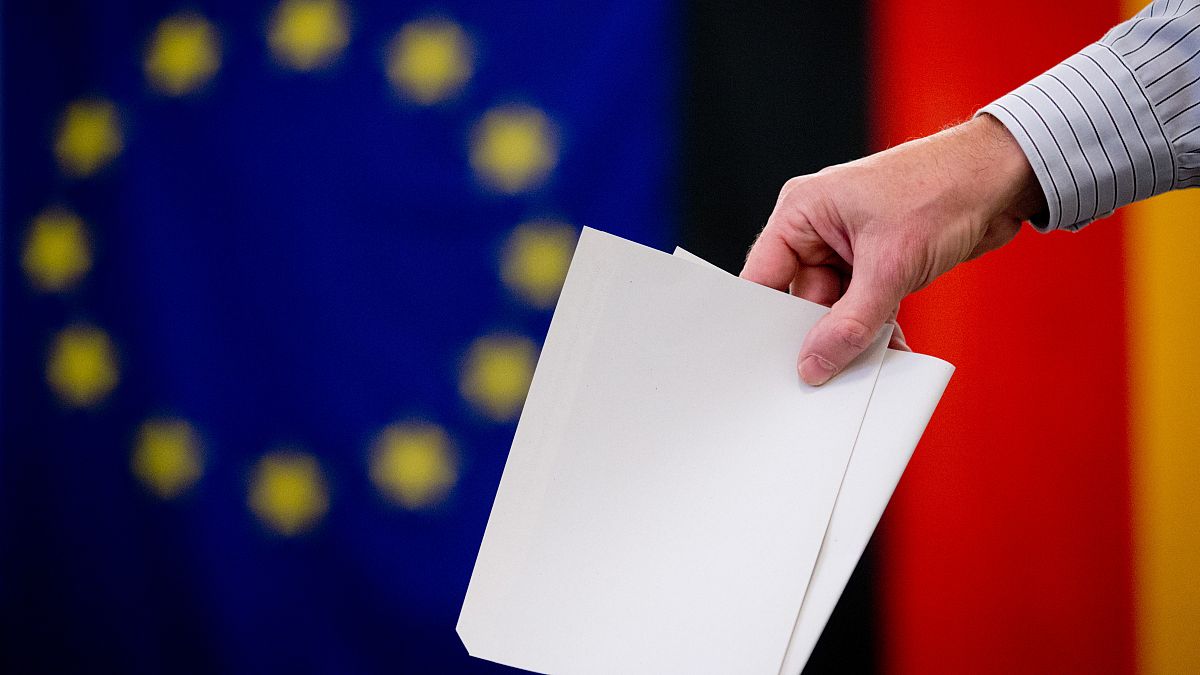In a few months, it will be time to vote and elect our representatives to the European Parliament. Do young French voters feel invested in this democratic process?
In June, a crucial step awaits citizens of the European Union member states: voting and electing their representatives to the European Parliament. During the last elections in 2019, there was a 50% increase in the participation of young people compared to 2014.
However, the situation was slightly different in France, where young people aged 18 to 39 seem to have abstained more than their European counterparts.
Turnout in this age group in France ranged between 32% and 37%, below the levels recorded in other European Union countries such as Denmark, Germany, and Belgium, where between 60% and 90% of young voters cast a ballot.
So where do we stand today? Do young French voters feel invested in this democratic process? We sought out some opinions.
Apathy
"I don't think I'll vote because I didn't even know when it was. And then I didn't pay much attention to the candidates and parties," explains a young woman.
"I just turned 18, and I don't know much about how it works, so it's certain that more should be done to inform us," comments a young man. "I'm 19, turning 20 soon this year, and I've never really heard about what it is. We just know there are elections, but we don't know anything behind it," adds a girl.
Faced with this lack of interest, the French branch of the "Young European Movement" is mobilising. The organisation recently organised a simulation of the European Parliament.
In Paris, on January 20th, high school students and young people from different French cities had the opportunity to step into the shoes of European deputies.
This initiative is part of the MEET project, funded by the European Commission, aimed at sparking debates in various locations across Europe to stimulate the civic participation of young people.
"I don't think young French people are particularly informed about European issues and how the Parliament works," emphasises Laure Niclot, the president of the Young European Movement.
"I believe the last Eurobarometer poll said that only 14% of French people knew the date of the European elections. So it's a real challenge for us to mobilise them, to raise awareness and provide information on these issues."
Coming together
"I think projects like today's, organised by the Young European, allow us to engage in dialogue with young people and help them understand, by doing it concretely, how the European Union works, how European institutions function, the role of the Parliament, the role of the Commission, the role of the Council," explains Jessica Larsson, Deputy Head of the European Commission Representation in France.
"I think this kind of education is crucial to understand that Europe is a democracy, and it's also a participatory democracy, as we've seen with the Conference on the Future of Europe, whose goal is to mobilise and listen to the expectations of European citizens."
But what is the EU itself doing to inform young people about the European elections?
"It's important to vote with knowledge, being well-informed," explains Larsson. "For that, there is the website of the European Commission, the European Parliament. There are also our European representations in France. We also have a website. We are also present on social media.
"So there are plenty of access points to information, and it's extremely important to get informed, ask questions, search for answers, and perhaps look for events like today's not only virtually."
Hand in hand, students can debate and seek solutions to improve a draft EU law.
"What we asked the students to do is study a text, a resolution from the European Parliament on the Conference on the Future of Europe. They are in a political group, so their goal is to look at the text and see what amendments they can make," explains a volunteer from the Young European.
"We have the opportunity to see negotiations between different parties," says one enthusiastic young participant. "Through this simulation, we can put ourselves in the place and role of these deputies, which teaches us more than a lecture in an auditorium."
To find other participation initiatives in France, Jessica Larsson invites young people to check the platform ensemble.eu.
